
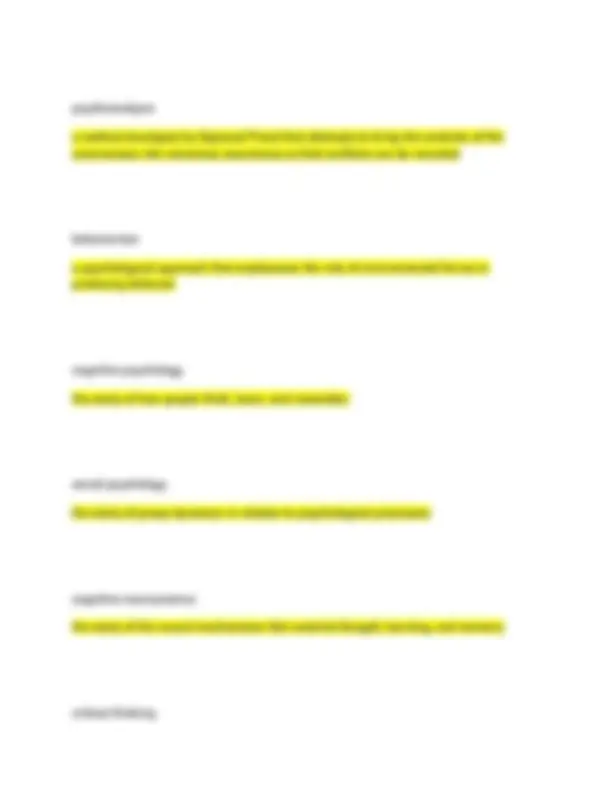
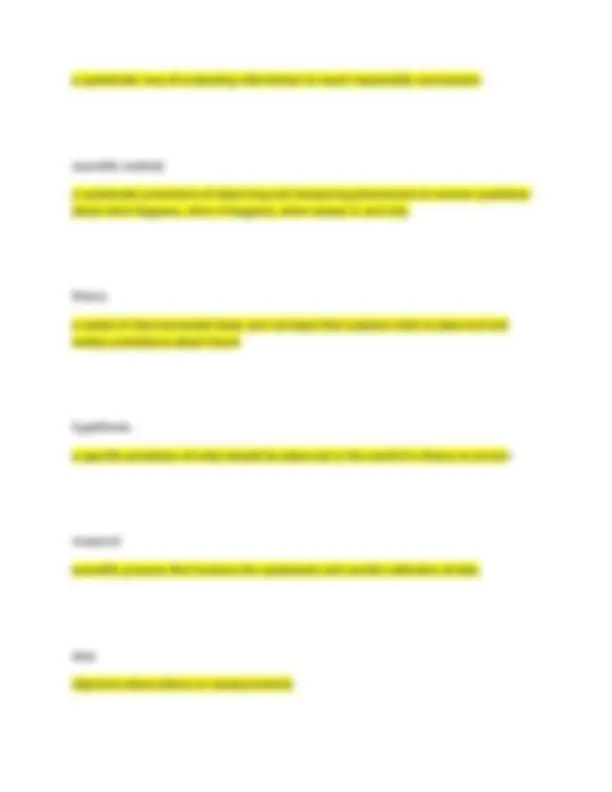
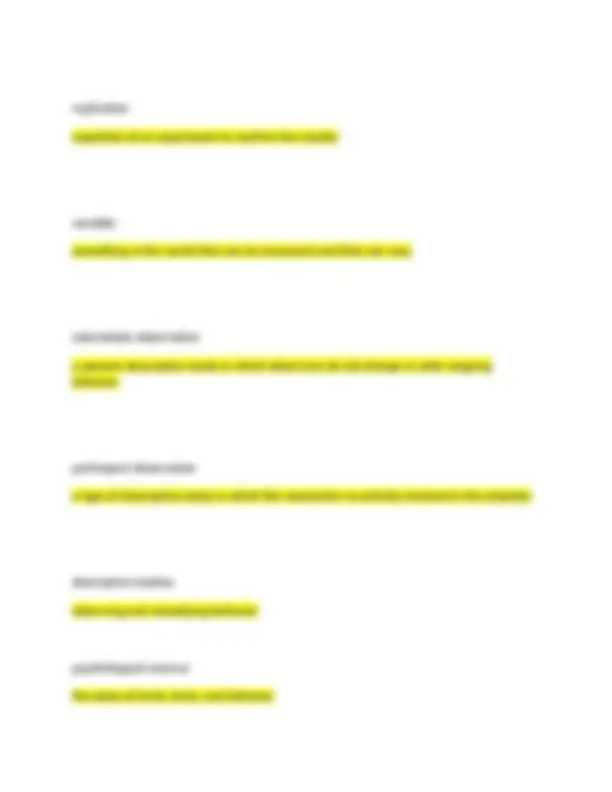
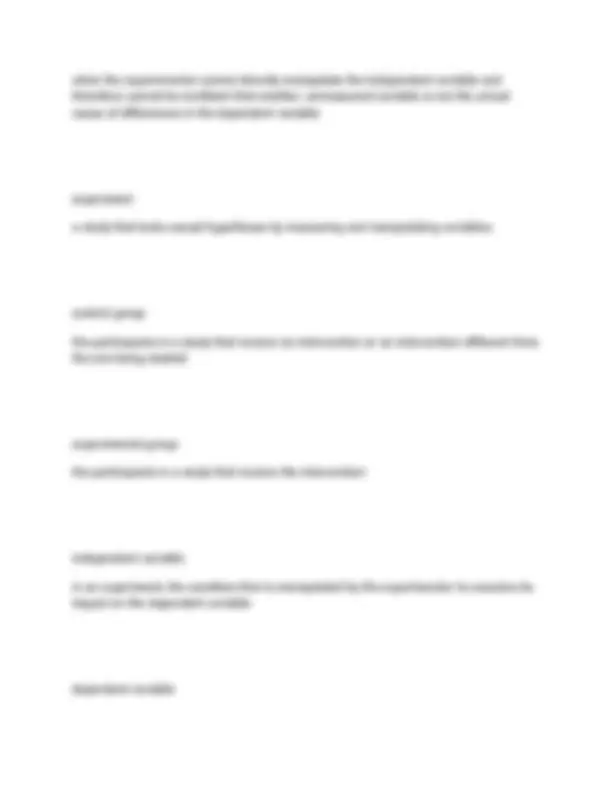
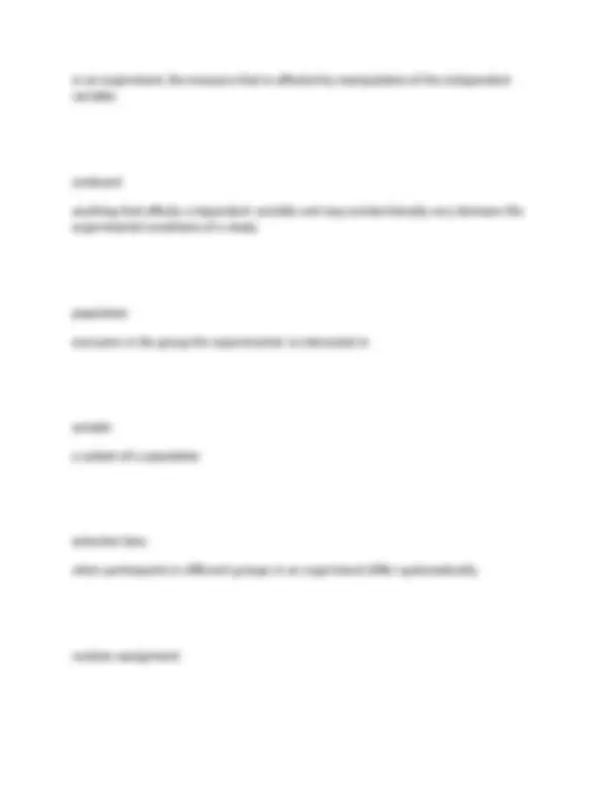
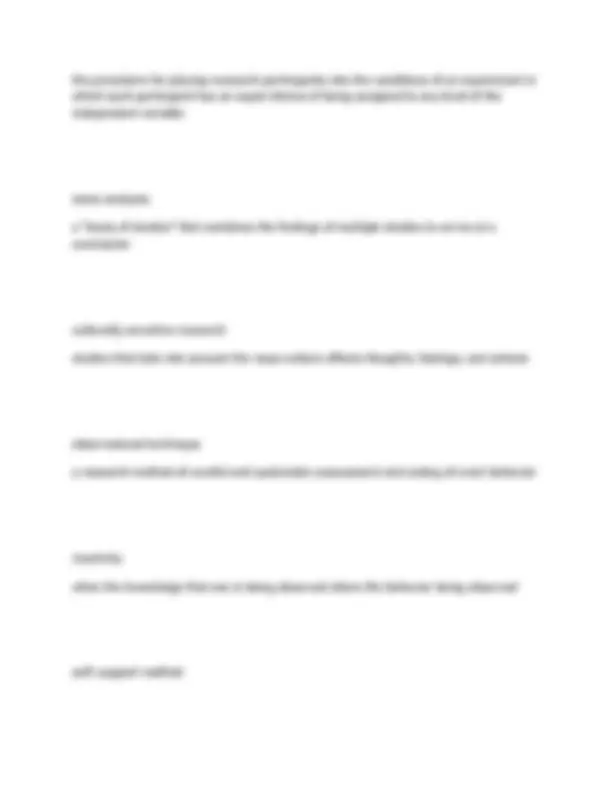
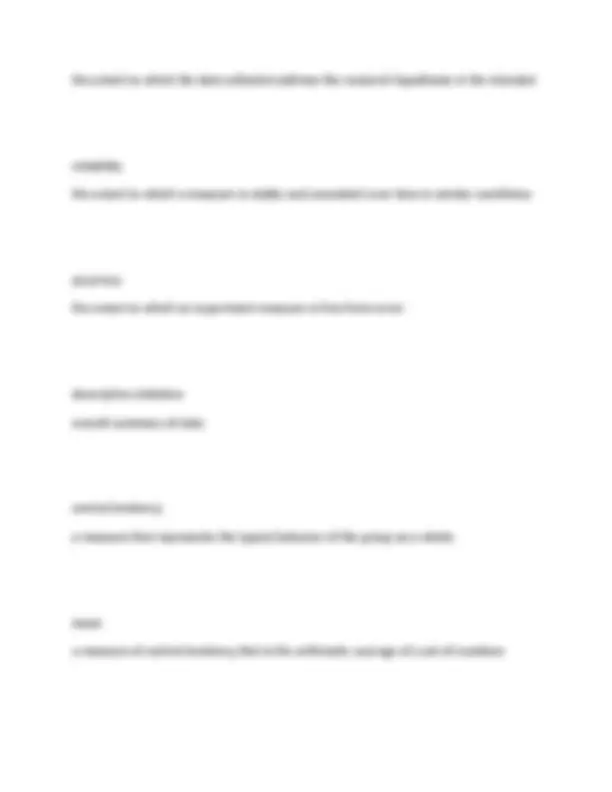
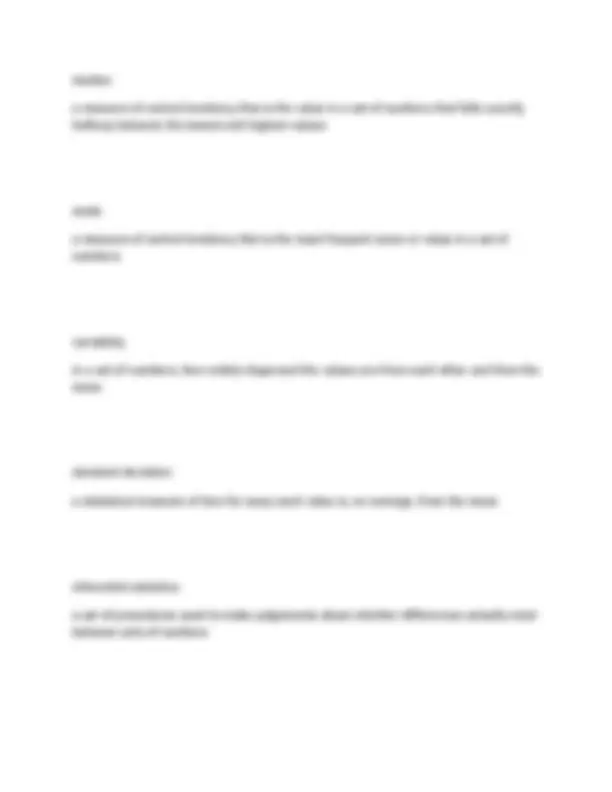
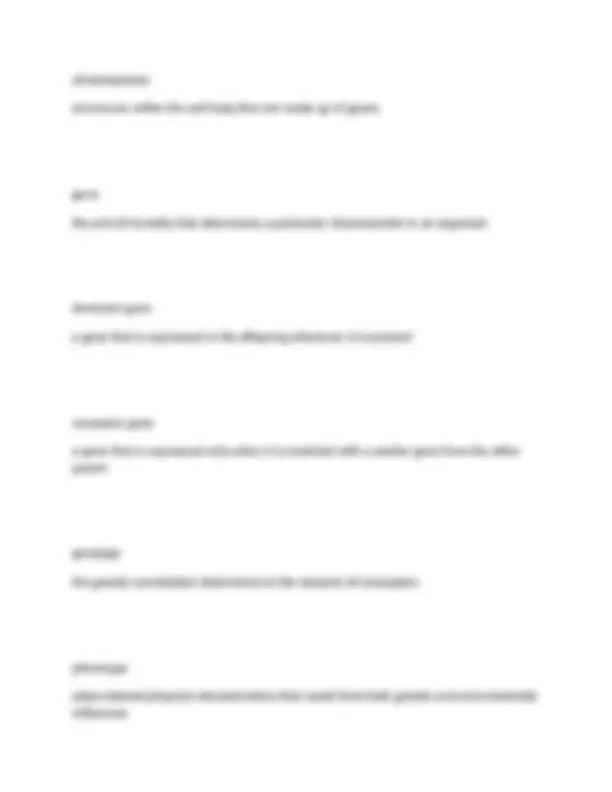
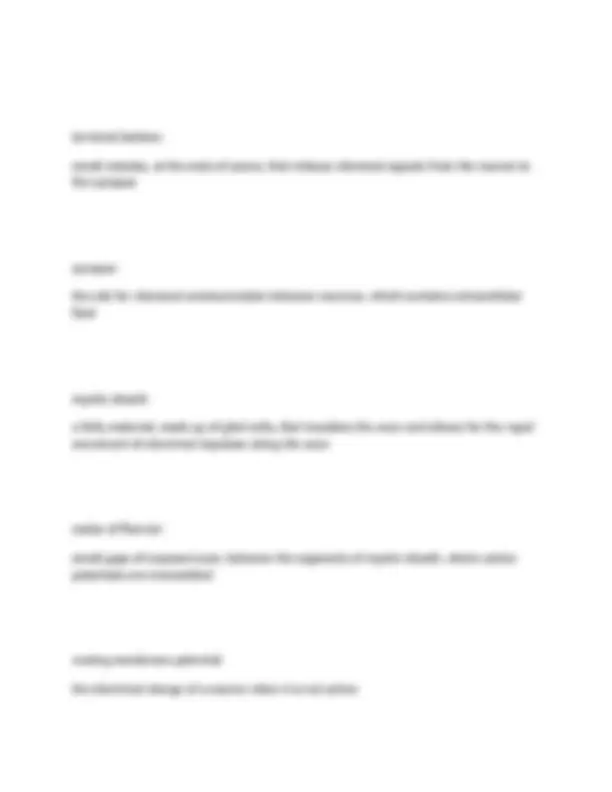
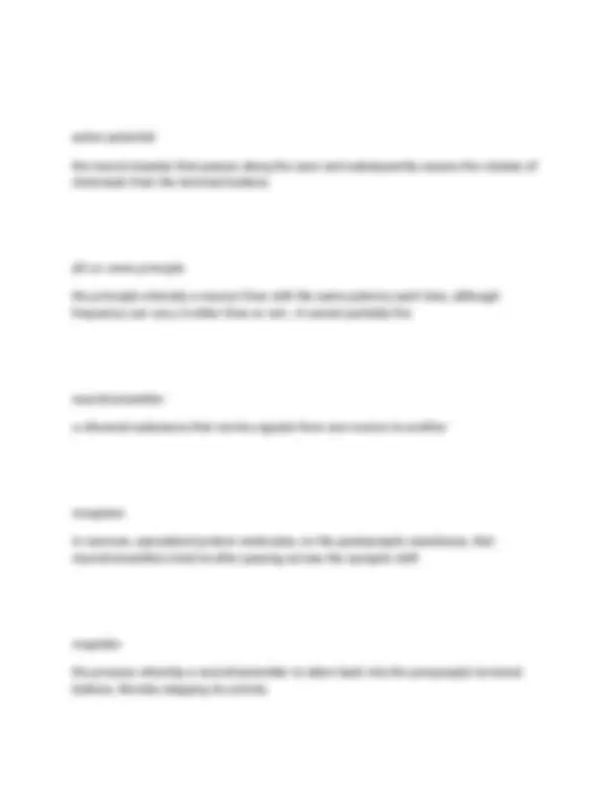
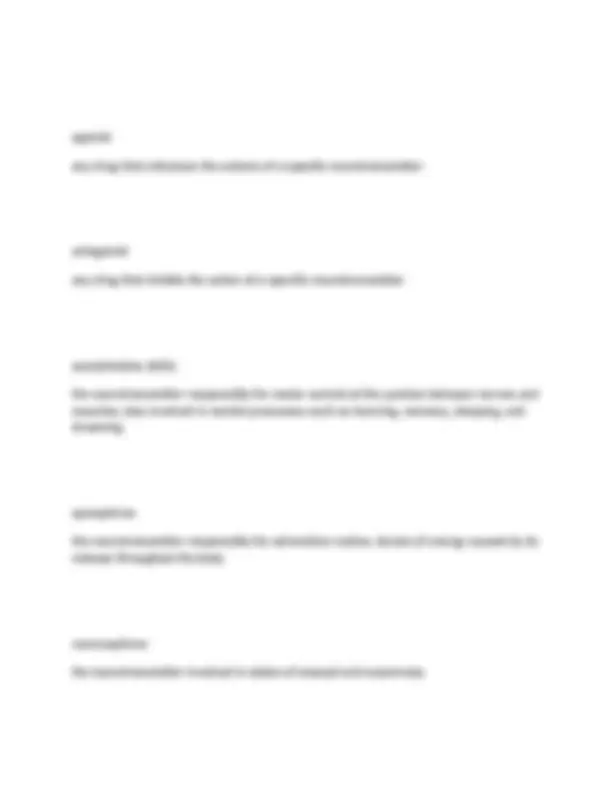
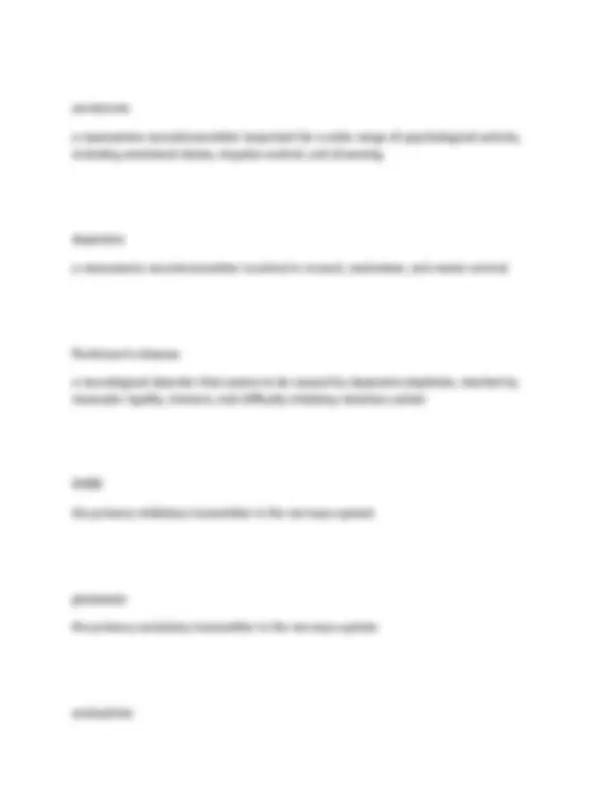
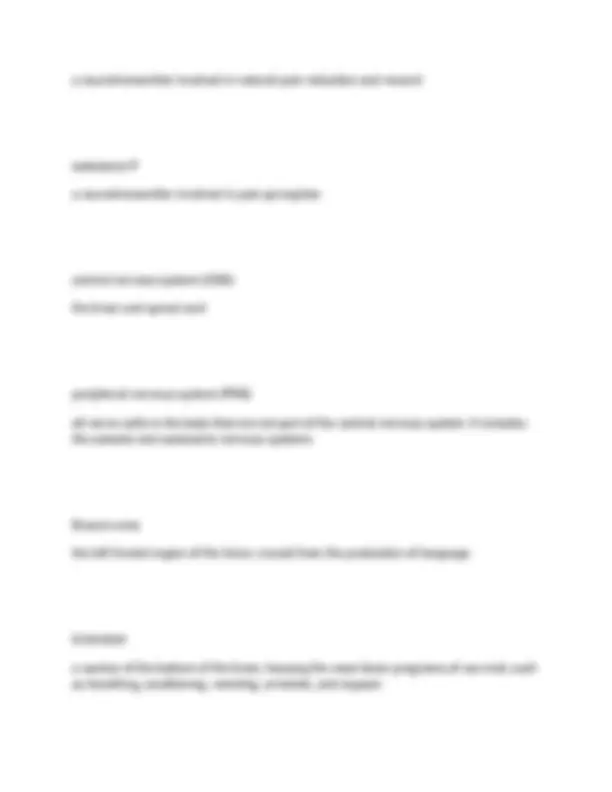
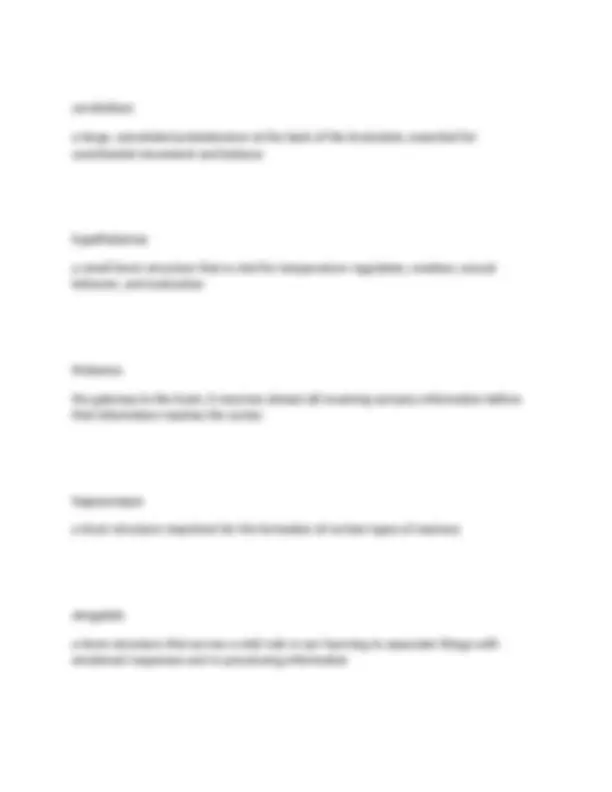
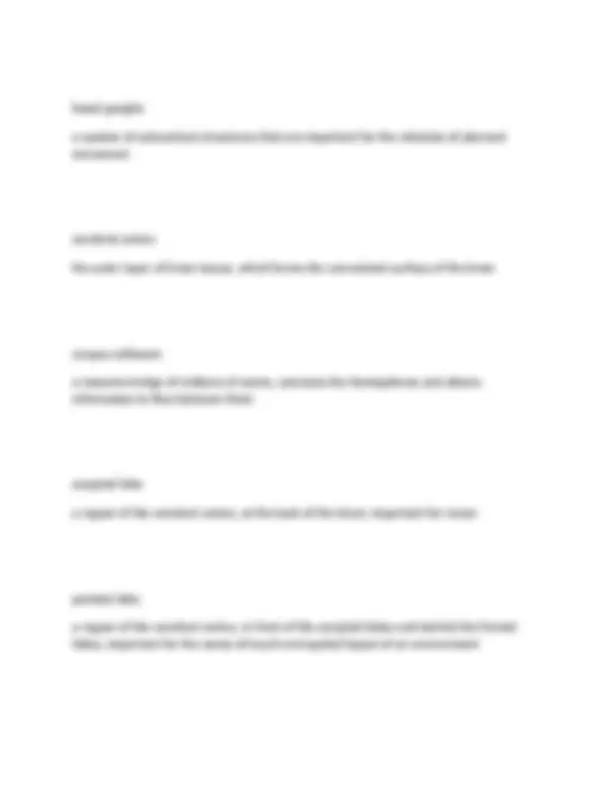
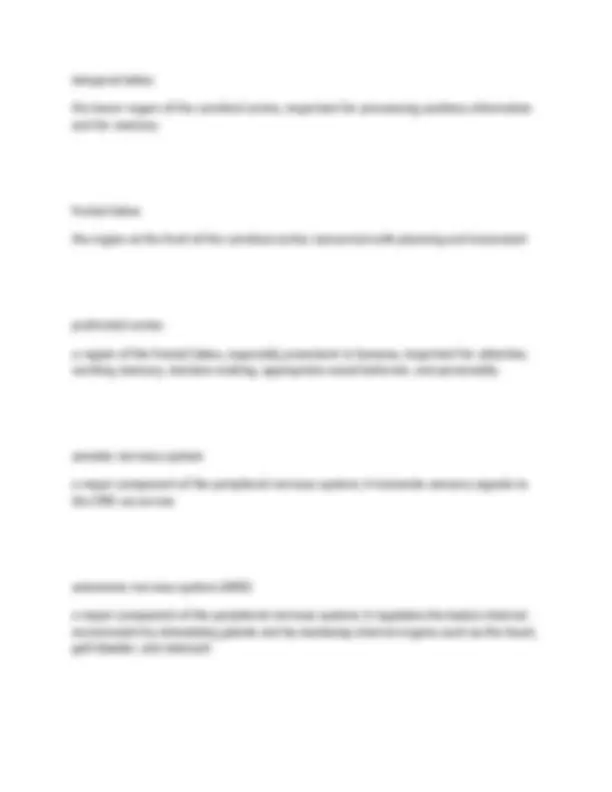
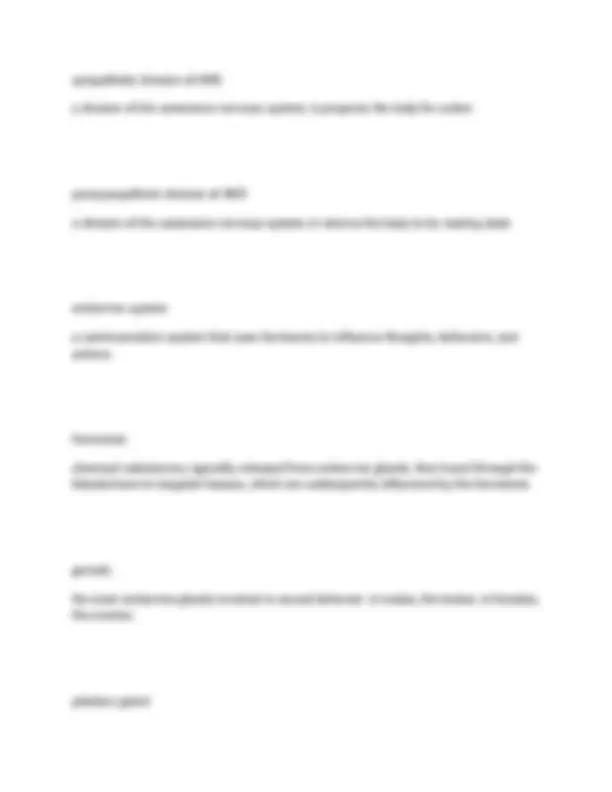
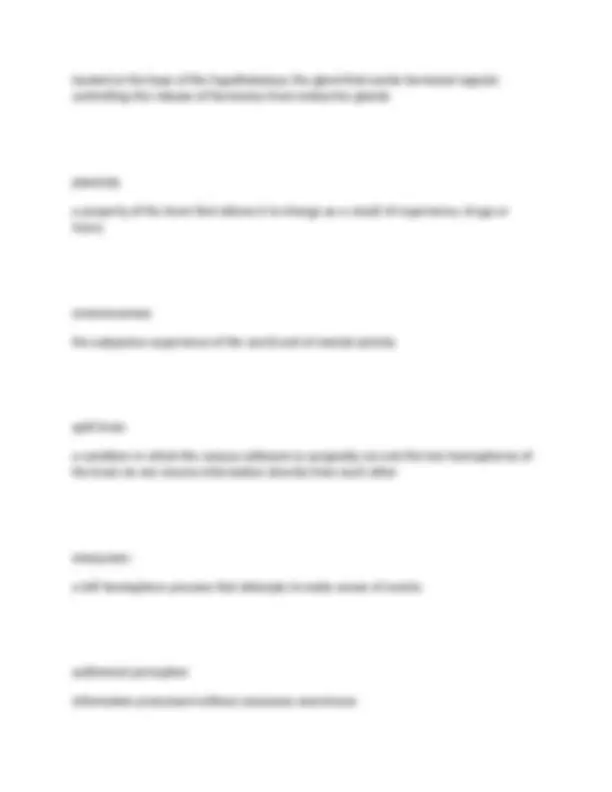
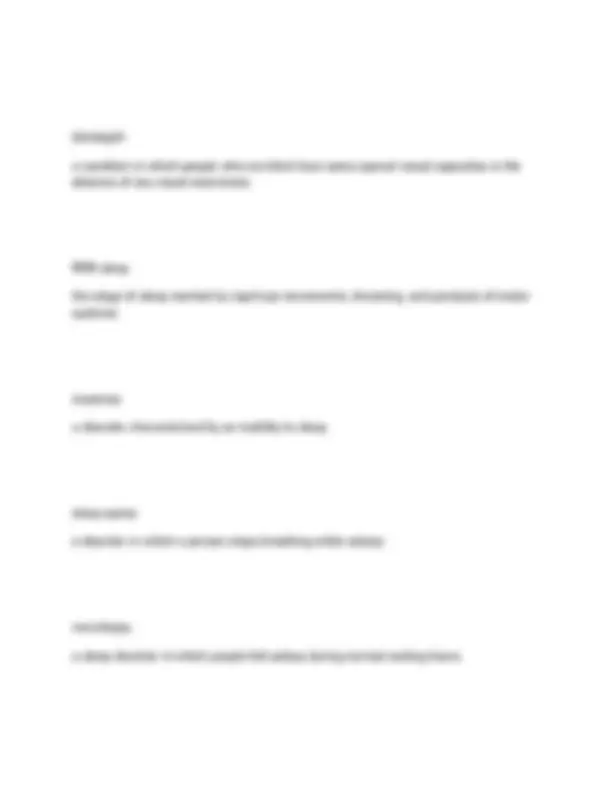
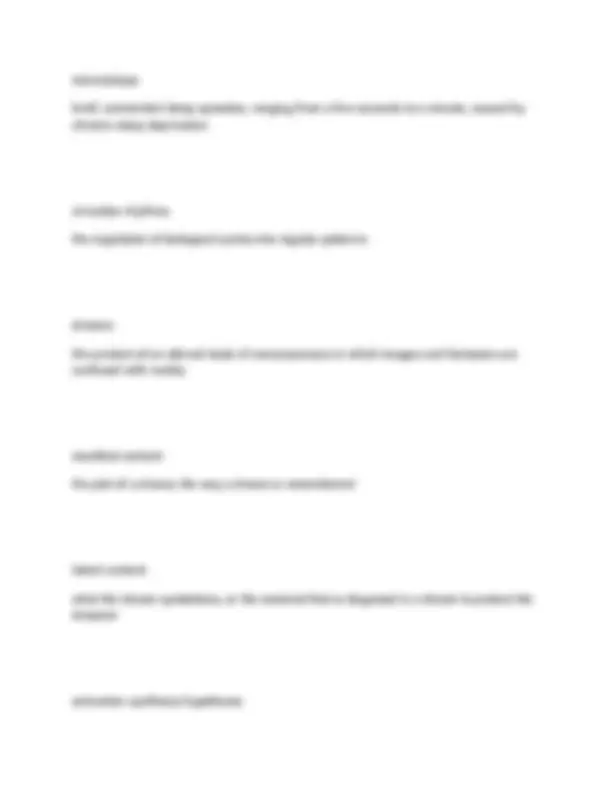
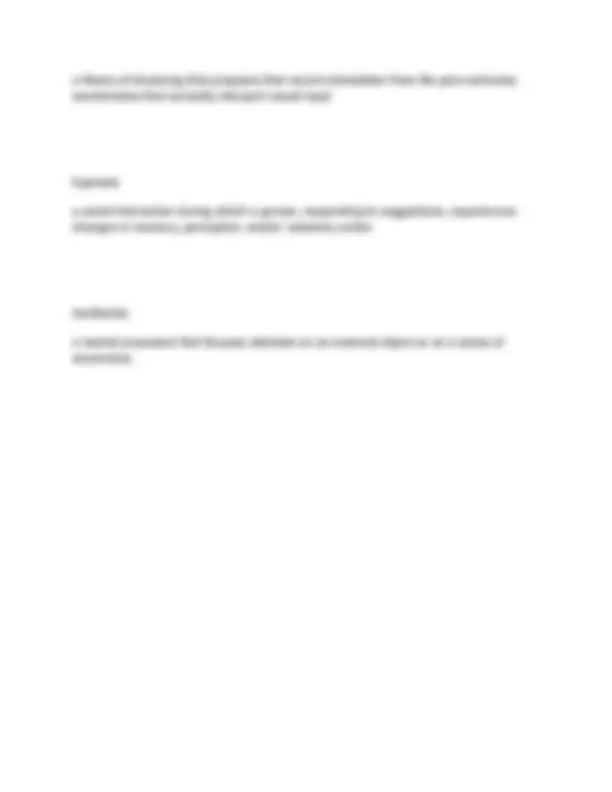


Study with the several resources on Docsity

Earn points by helping other students or get them with a premium plan


Prepare for your exams
Study with the several resources on Docsity

Earn points to download
Earn points by helping other students or get them with a premium plan
Community
Ask the community for help and clear up your study doubts
Discover the best universities in your country according to Docsity users
Free resources
Download our free guides on studying techniques, anxiety management strategies, and thesis advice from Docsity tutors
A comprehensive list of key terms and definitions relevant to psychology 1100, covering topics such as evolutionary theory, structuralism, functionalism, psychoanalysis, behaviorism, cognitive psychology, and more. It serves as a valuable resource for students preparing for their first exam in the course, offering a solid foundation for understanding fundamental concepts in psychology.
Typology: Exams
1 / 30

This page cannot be seen from the preview
Don't miss anything!























evolutionary theory in psychological science, a theory that emphasizes the inherited, adaptive value of behavior and mental activity throughout the history of species adaptations in evolutionary theory, the physical characteristics, skills, or abilities that increase the chances of reproduction or survival and are therefore likely to be passed along to future generations natural selection Darwin's theory that those who inherit characteristics that help them adapt to their particular environments have a selective advantage over those who do not introspection a systematic examination of subjective mental experiences that requires people to inspect and report on the content of their thoughts
structuralism an approach to psychology based on the idea that conscious experience can be broken down into its basic underlying components or elements stream of consciousness a phrase coined by William James to describe one's continuous series of ever- changing thoughts functionalism an approach to psychology concerned with the adaptive purpose, or function, of mind and behavior Gestalt theory a theory based on the idea that the whole of personal experience is different from simply the sum of its constituent elements unconscious the mental processes that operate below the level of conscious awareness
a systematic way of evaluating information to reach reasonable conclusions scientific method a systematic procedure of observing and measuring phenomena to answer questions about what happens, when it happens, what causes it, and why theory a model of interconnected ideas and concepts that explains what is observed and makes predictions about future hypothesis a specific prediction of what should be observed in the world if a theory is correct research scientific process that involves the systematic and careful collection of data data objective observations or measurements
replication repetition of an experiment to confirm the results variable something in the world that can be measured and that can vary naturalistic observation a passive description study in which observers do not change or alter ongoing behavior participant observation a type of descriptive study in which the researcher is actively involved in the situation descriptive studies observing and classifying behavior psychological science the study of mind, brain, and behavior
observing and classifying developmental changes that occur in different groups of people at the same time observer bias systematic errors in observation that occur because of an observer's expectation experimenter expectancy effect actual change in the behavior of the people or animals being observed that is due to observer bias correlational study a research method that examines how variables are naturally related in the real world, without any attempt by the researcher to alter them directionality problem when researchers find a relationship between two variables in a correlational study, they cannot determine which variable may have caused changes in the other variable third variable problem
when the experimenter cannot directly manipulate the independent variable and therefore cannot be confident that another, unmeasured variable is not the actual cause of differences in the dependent variable experiment a study that tests casual hypotheses by measuring and manipulating variables control group the participants in a study that receive no intervention or an intervention different from the one being studied experimental group the participants in a study that receive the intervention independent variable in an experiment, the condition that is manipulated by the experimenter to examine its impact on the dependent variable dependent variable
the procedure for placing research participants into the conditions of an experiment in which each participant has an equal chance of being assigned to any level of the independent variable meta-analysis a "study of studies" that combines the findings of multiple studies to arrive at a conclusion culturally sensitive research studies that take into account the ways culture affects thoughts, feelings, and actions observational technique a research method of careful and systematic assessment and coding of overt behavior reactivity when the knowledge that one is being observed alters the behavior being observed self-support method
a method of data collection in which people are asked to provide information about themselves, such as in questionnaires or surveys case study a special type of observational/descriptive study that involves intensive examination of one person or a few individuals or one or a few organizations response performance a research method in which researchers quantify perceptual or cognitive processes in response to a specific stimulus electroencephalogram (EEG) a device that measures electrical activity in the brain brain imaging a range of experimental techniques that make brain structures and brain activity visible positron emission tomography (PET)
the extent to which the data collected address the research hypothesis in the intended reliability the extent to which a measure is stable and consistent over time in similar conditions accuracy the extent to which an experiment measure is free from error descriptive statistics overall summary of data central tendency a measure that represents the typical behavior of the group as a whole mean a measure of central tendency that is the arithmetic average of a set of numbers
median a measure of central tendency that is the value in a set of numbers that falls exactly halfway between the lowest and highest values mode a measure of central tendency that is the most frequent score or value in a set of numbers variability in a set of numbers, how widely dispersed the values are from each other and from the mean standard deviation a statistical measure of how far away each value is, on average, from the mean inferential statistics a set of procedures used to make judgements about whether differences actually exist between sets of numbers
monozygotic twins twin siblings who result from one zygote splitting in two and therefore share the same genes (identical twins) dizygotic twins twin siblings who result from two separately fertilized eggs (fraternal twins) heritability a statistical estimate of the variation, caused by differences in heredity, in a trait within a population neuron the basic unit of the nervous system; it operates through electrical impulses, which communicate with other neurons through chemical signals. They receive, integrate, and transmit information in the nervous system sensory neurons one of the three types of neurons, these afferent neurons detect information from the physical world and pass that information along the brain
motor neurons one of the three types of neurons, these efferent neurons direct muscles to contract or relax, thereby producing movement interneurons one of the three types of neurons, these neurons communicate only with other neurons, typically within a specific brain region dendrites branchlike extensions of the neuron that detect information from other neurons cell body in the neuron, where information from thousands of other neurons is collected and processed axon a long narrow outgrowth of a neuron by which information is transmitted to other neurons
action potential the neural impulse that passes along the axon and subsequently causes the release of chemicals from the terminal buttons all-or-none principle the principle whereby a neuron fires with the same potency each time, although frequency can vary; it either fires or not--it cannot partially fire neurotransmitter a chemical substance that carries signals from one neuron to another receptors in neurons, specialized protein molecules, on the postsynaptic membrane, that neurotransmitters bind to after passing across the synaptic cleft reuptake the process whereby a neurotransmitter is taken back into the presynaptic terminal buttons, thereby stopping its activity
agonist any drug that enhances the actions of a specific neurotransmitter antagonist any drug that inhibits the action of a specific neurotransmitter acetylcholine (ACh) the neurotransmitter responsible for motor control at the junction between nerves and muscles; also involved in mental processes such as learning, memory, sleeping, and dreaming epinephrine the neurotransmitter responsible for adrenaline rushes, bursts of energy caused by its release throughout the body noreinephrine the neurotransmitter involved in states of arousal and awareness